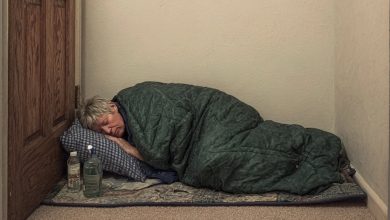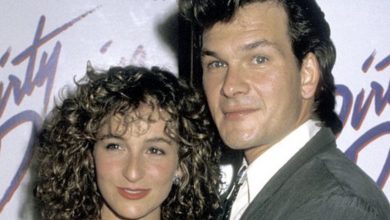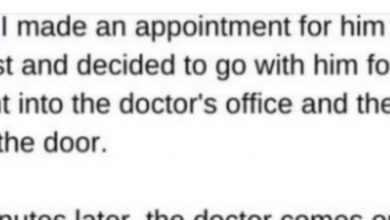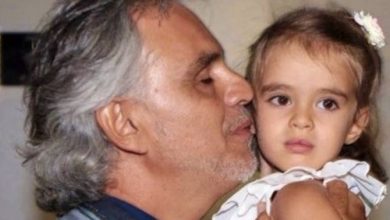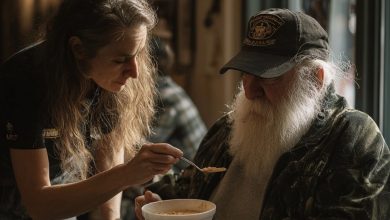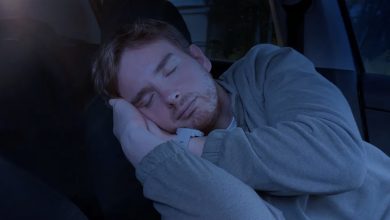“They Said I Wasn’t Worth Their Tears, But My Comeback Proved Them Wrong”
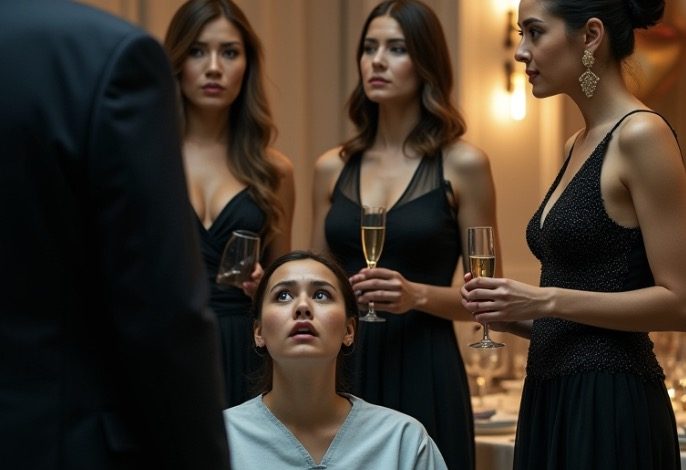
I woke up from my coma completely alone. Upstairs, machines beeped in a steady rhythm, reminding me that I was still alive, even if it didn’t feel that way. Downstairs, my parents were hosting a celebration for my sister. They said I wasn’t worth their tears. But the moment I forced myself to see them again, everything changed.
The first sensation I noticed was the weight of air filling my lungs, heavy and strange, as though I had forgotten how to breathe. The second was pain—sharp, aching, stabbing through every part of my body. The third was emptiness, deep and cold. I blinked against the harsh lights above me, my throat dry, my lips cracked. Every sound was too loud, every movement too heavy. My body no longer belonged to me. When I tried to lift my head from the pillow, panic washed over me. I could barely move.
A nurse entered and stopped short. Her eyes widened before she smiled softly. “You’re awake,” she whispered, relief spreading across her face. “You’ve been in a coma for almost two months.”
Two months. The number echoed inside me. My first thought wasn’t about myself—it was about who had been waiting for me. Who had cared enough to sit by my side.
“My parents?” My voice was weak, thin, barely more than a whisper. “Are they here?”
The nurse hesitated. Her smile wavered. “They signed the visitation forms at the beginning but…” She didn’t finish. Instead, she adjusted my IV, pretending to be busy. “Rest now. You’ll need your strength.”
But I already knew the truth. I turned my head and saw the empty chair by my bed. A vase of flowers stood in the corner, wilted and brittle. The “Get Well Soon” balloon had sunk low, deflated. No fresh flowers, no cards, no notes—just silence. Sixty days of silence.
Hours later, I heard laughter. Music. The faint sound of glasses clinking. At first, I thought it came from a TV in another room, but it grew louder, clearer. I pressed the call button. A kind night nurse named Maria came in.
“What’s happening?” I asked.
She hesitated, her face soft with pity. “Your family booked the hospital’s private ballroom. They’re holding an event… for your sister. Something about her latest achievements.”
My chest hollowed out. “Take me there,” I begged.
“You’re too weak,” she said gently. “It’s not safe.”
But I begged until she finally gave in. Two orderlies rolled my bed into the service elevator. My heart raced with a mix of dread and determination.
When the doors opened onto the mezzanine, I saw it all.
The ballroom sparkled with lights and ribbons. Tables overflowed with food and champagne. At the center stood my sister Rachel, wearing a glittering designer dress, a tiara on her head, smiling as she opened gifts. Cameras flashed. Applause filled the room. My parents glowed with pride, their faces lit with joy.
And me? I was a ghost in a hospital gown, watching from the shadows.
My dad noticed me first. Relief never touched his face. Instead, his expression twisted into annoyance. He leaned toward my mom and muttered. Even across the room, I caught his words: “Why did they bring her down here? She’ll ruin the photos.”
My mom didn’t even look at me. She waved her hand as if brushing away a fly. “Get her back upstairs,” she ordered the nurse. “We’re celebrating someone who actually matters. Don’t waste time on someone useless.”
The words scorched me more than fever ever could. I clenched the blanket, forcing back tears. Then Rachel saw me. For a moment, her smile faltered. Then she smirked, lifted her glass, and called out loud enough for all to hear:
“Don’t look so sad, dear sister! Not everyone can be a star.”
Laughter rippled through the crowd.
That moment lit a fire in me. My body was weak, but my mind sharpened. I realized I hadn’t just woken from a coma. I had woken from a lifetime of believing their lies.
I swore to myself: they wanted to call me useless? They would soon find out what useless truly meant.
Recovery was brutal. My muscles refused to obey me. Every step was like dragging weights. But my anger, my humiliation, became fuel. When the therapists pushed me, I pushed harder. When the doctors said rest, I forced myself to keep moving. Every painful step down the hospital corridor, I whispered: Not useless. Not anymore.
Nights were hardest. I lay awake, hearing faint music drifting up from the ballroom below—another party for Rachel. Another night of praise, laughter, and applause. I clenched my fists and forced myself to train harder.
One evening, strong enough to walk the hall, I overheard my parents.
“The doctors say she’s improving,” my mom complained.
“Improving into what?” my dad scoffed. “She’s always been dead weight. Rachel is the star. Why waste money on her?”
Rachel’s voice was clear, sweet, and cruel: “Don’t worry. Once I win the national title, nobody will even remember she exists.”
They laughed together.
Their words didn’t break me. They made me steel.
When I was discharged, I returned home to a shrine built for Rachel. Photos of her in gowns lined every wall. Trophies glittered on every shelf. It was as if I had never existed.
At dinner, my father raised his glass. “To Rachel—the daughter who makes us proud!”
The words cut, but instead of bleeding, I smiled. Because I understood something: without Rachel, they were nothing. Their whole world depended on her crown.
That night, while they gushed over Rachel’s followers online, I sat in my room making lists. Names of sponsors she insulted, rivals she sabotaged, people she humiliated. Memories I had buried became weapons. They thought I was invisible. They had no idea I was preparing to strike.
The night of the National Starlight Pageant arrived. Rachel glowed like royalty, tiara sparkling, her every move perfect. My parents watched proudly from the front row. I stood quietly in the back, in a simple black dress, waiting.
When her final question came, the host asked: “What’s the greatest act of kindness you have ever shown?”
Rachel froze. She stammered. “I… I once donated some old clothes.”
Whispers spread. Judges frowned.
That was my cue. I rose, slow and deliberate. The room fell silent.
“Clothes? That’s what you call kindness, Rachel?”
Gasps filled the hall. My parents turned pale. Rachel’s smile collapsed.
“What about when I woke from a two-month coma, alone, while you were celebrating downstairs?”
The crowd murmured louder.
“What about when Mom said, ‘We’re celebrating someone who matters. Don’t waste time on someone useless’?”
Judges leaned forward, frowning.
“What about when Dad said I’d ruin the photos?”
Rachel sputtered. “She’s lying! She’s jealous!”
But no one believed her. Sponsors rose and walked out. Judges marked their sheets.
When results were announced, Rachel’s name wasn’t even on the list. The crown went to a girl she had mocked for years. The applause thundered—not for Rachel, but for someone who had earned it.
My parents sat frozen, their empire of glitter collapsing. Society turned its back on them.
I stood tall, finally free of their shadow. I didn’t need their approval. For the first time, I felt alive.
They had called me useless. But I had taken their stage and destroyed it. And in the ashes, I found something stronger than their lies—myself.

